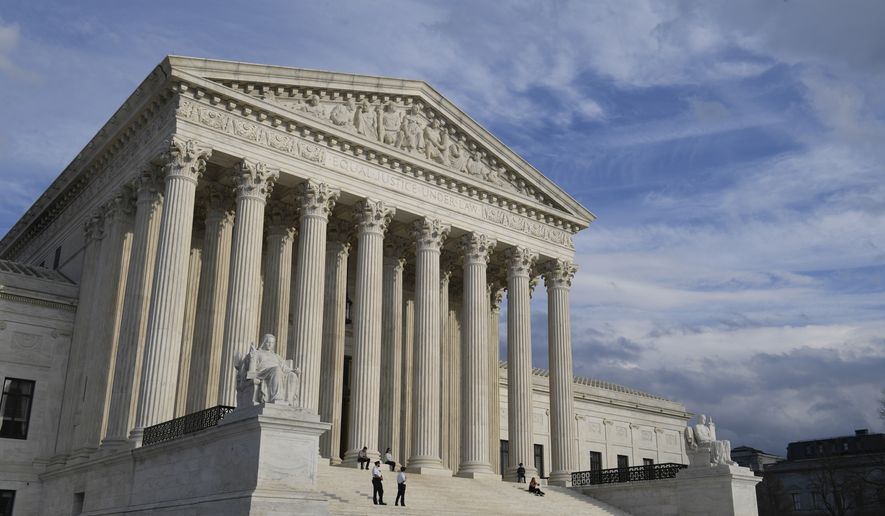The Supreme Court said Monday it will hear two cases in which public officials blocked critics on their personal social media accounts.
In both cases, the officials had used their personal accounts for public official announcements.
Circuit appellate courts have split on the matter, with one ruling the officials were acting as private citizens and so blocking was allowed and another finding that the government employees had effectively turned their accounts into official business and could not block critics.
The cases come several years after former President Donald Trump tested the issue. He used his @realDonaldTrump account to conduct presidential business but also moved to block some of his critics.
Lower courts ruled against the then-president, finding he violated the Constitution. The Supreme Court later vacated those decisions after Mr. Trump had left office — and was ousted from Twitter — by finding the issue had become moot.
Now the justices face two competing rulings.
The U.S. Court of Appeals for the 9th Circuit ruled against local officials, saying they crossed a line when they had “clothed their pages in the authority of their offices and used their pages to communicate about their official duties.”
But the U.S. Court of Appeals for the 6th Circuit allowed local officials to block users, saying the test was whether the official “could not have behaved as he did without the authority of his office.”
Lawyers for the blocked users in that second case urged the justices to step in.
“This case is ideally postured for the Court to address the correct test for determining whether a public official’s conduct on social media constitutes state action,” the plaintiffs’ lawyers wrote.
In the case out of California, two school board trustees had created Facebook accounts for their campaigns. After they were elected, they updated the accounts to reflect their new positions and to share official board business.
Two parents of children in the district began to post what the trustees considered “repetitious and non-responsive” comments — including one reply made to 42 different posts. The trustees blocked both parents.
No district resources were spent on maintaining the page, but the 9th Circuit still said posting about government business made it a First Amendment public forum, where blocking amounted to silencing free speech rights.
The case out of Michigan saw the city manager of Port Huron convert his personal Facebook page into a forum for government announcements. While still listing himself as “daddy” and “husband,” his page also listed his official office and used Port Huron as the email address.
He mixed posts about his family dog with posts about city playgrounds and the creation of a new city diversity office. When the pandemic hit, he posted about the city’s shutdown situation, prompting repeated criticism from one resident.
The city manager deleted the comments and blocked the resident from the page.
He later unpublished the page, saying if he had to allow all comments, including what he considered personal attacks, he’d rather not have a Facebook presence at all.
The 6th Circuit said that because the city manager’s online activities weren’t compelled by the city, he was acting in his personal capacity and there was no violation of rights.
Courts have come up with various tests to figure out when a government official’s own actions cross the line to become government action, and when they don’t.
In the Trump case, for example, one appeals court judge suggested that because Mr. Trump had been able to block users from his account before he took office, blocking them while in office wasn’t unique to his government position.
The cases the court agreed to hear are Lindke v. Freed and O’Connor-Ratcliff v. Garnier. The cases will likely be heard in the court’s next term starting in October.
• Stephen Dinan can be reached at sdinan@washingtontimes.com.




Please read our comment policy before commenting.